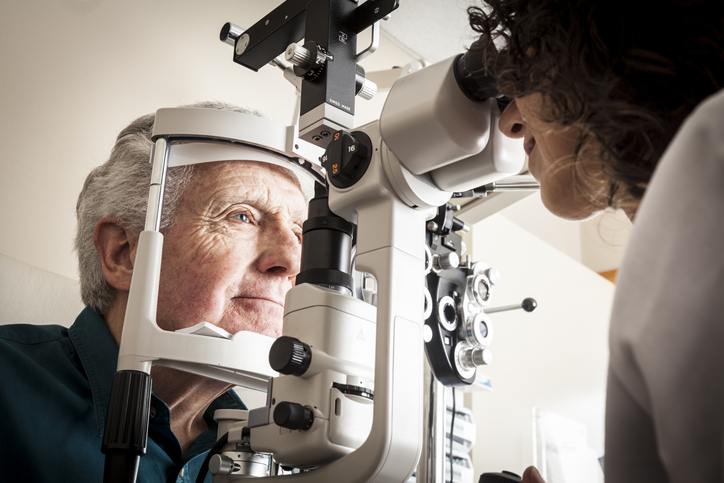
Learn everything you need to know about ARMD here.
If your aging relative has been given an age-related macular degeneration diagnosis , it’s bound to raise a variety of concerns and questions. And you’re not alone; an approximate 11 million seniors in the U.S. alone have been given the same diagnosis, and that number is anticipated to double by the year 2050. Morning Glory Home Care, the top providers of elder care Alton, IL and the surrounding area has to offer, is on hand to provide the facts you need to better understand this disease and how to best help your senior loved one.
What is macular degeneration?
Age-related macular degeneration (ARMD) is a disease in which the middle of the retina (the macula) is damaged, impacting central vision and the details needed in reading, driving a car, watching TV, and distinguishing faces. It is the most common cause of irreversible central vision loss in seniors, impacting 1 in 3 adults age 75 and older. It’s also important to understand that macular degeneration will not traditionally bring on complete loss of sight; peripheral vision remains undamaged.
What are the two forms of macular degeneration?
ARMD can manifest in two kinds:
- Wet ARMD: Accounting for roughly 10 – 20% of all diagnoses, wet age-related macular degeneration generates a build-up of drusen – fat deposits – and an abnormality of the blood vessels under the retina. Both of these manifestations together bring about retina damage. Wet ARMD can advance at a fast rate and produce extreme and irrevocable central vision blindness.
- Dry ARMD: Dry ARMD makes up the majority (up to 90%) of macular degeneration diagnoses. As with wet ARMD, drusen develops under the retina, leading to a thinning of the macula and eventual central vision loss. Acceleration is more gradual in this kind of ARMD, but it can progress to wet ARMD.
In both forms of ARMD, early diagnosis and continued monitoring are vital to protecting remaining vision.
How is ARMD diagnosed?
All older adults should obtain eye exams at least on a yearly basis. To detect ARMD, the eye doctor will dilate the eyes and conduct a fundoscopy, fundus photography, and a visual acuity test. If ARMD is presumed, an extra test, a fluorescein angiography, will very likely be required. In this test, dye is injected to discover any leakages in the blood vessels. The Amsler grid eye test is a quick and simple tool that can also be utilized at home as a first step in figuring out if ARMD may be a possibility.
What treatment options are possible for ARMD?
While there’s presently no cure for macular degeneration, there are some treatment options the doctor may want to try to prevent the further advancement of the disease:
- Antioxidants and zinc
- Afibercept
- Ranzibizumab injections
- Pegaptanib sodium injections
- Photodynamic therapy
- Bevacizumab injections
- Vision rehab and low vision aids
Is it possible to prevent macular degeneration?
Making healthy lifestyle decisions, such as quitting (or not beginning) smoking, regularly exercising, adopting a wholesome diet that includes an abundance of fruits, vegetables, and fish, achieving a healthy weight and normal blood pressure, and wearing eye protection when outdoors, such as sunglasses and hats, may help lower the chance of developing ARMD.
For a trusted partner in care for a senior with a macular degeneration diagnosis and to provide help with transportation, medication reminders, meal preparation, light housework, and much more, contact Morning Glory Home Care, providing the highest quality elder care Alton, IL and the surrounding area have to offer, any time at 618-667-8400.
